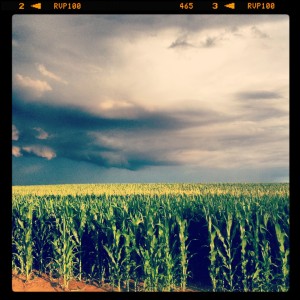I kicked off the week in Lubbock for the Southwest Council of Agribusiness meeting where I presented on important legal issues facing Texas producers. It was a great meeting and I thank Tom Sell for the opportunity to attend and speak. On Friday, I was off to Bellville to speak at the Multi County New Landowners Educational Series on laws impacting rural landowners. What a fun group of people that included! I was very impressed by the new landowner program, put together by Philip Shackelford, Kara Matheney and Scott Willey. Welcome to all of the new readers from these presentations!
It has been a busy week in the ag law world. Here are some of the major happenings this week.
* AQHA Cloning Lawsuit Oral Argument Held. The United States Court of Appeal for the Fifth Circuit heard oral argument earlier this month in Abraham & Veneklasen Joint Venture v. AQHA. As you read previously, the plaintiffs were successful before a trial court jury, which found that the AQHA rules prohibiting the registration of cloned horses violated federal and state antitrust law. The AQHA has appealed to the Fifth Circuit and the audio of the oral argument is now available online. The Fifth Circuit panel has taken the case under advisement and issue a ruling at a later date.
* Cargill Sues Syngenta Over Prohibited Imports to China. Cargill, the leading U.S. grain exporter, has filed suit against Syngenta AG alleging negligence, unfair trade practices, and reckless or willful misconduct and is seeking over $90 million in damages resulting from China’s rejection of U.S. corn shipments. Cargill claims Syngenta provided genetically modified seed to American farmers prior to securing approval of such seed from China for export. The Agrisure Viptera variety (MR 162) is found throughout the United States, so the Chinese ban on imports of this variety essentially forecloses US exports to the country. MR 162 has been approved for planting in the US and many countries, including Brazil, Canada, Japan, Mexico and the European Union, have approved the variety for imports. [Read article here.]

* Article Discusses Central Texas Drought and Groundwater Use. Once again, the Texas Tribune published an interesting article discussing groundwater use in Central Texas. The article focuses on the Carrizo-Wilcox Aquifer and discusses concerns of landowners and agricultural producers with regard to pumping by water marketers and outlines the difficulty in planning and modeling to ensure that over pumping does not occur. [Read article here.]
* Rail Backlog Poses Problem During Harvest Season in Midwest. The New York Times published an article recently discussing an important issue facing farmers in the Midwest: shortage of rail space for grain. In North Dakota, the oil and gas boom has created a severe backlog of product to be moved via train. This poses a significant problem for farmers, whose grain is usually shipped via train to east and west coast ports for exports to Asia and Europe. This problem is a serious concern for farmers as well as food manufacturers who are waiting on grain to arrive. [Read article here.]
* New Mexico Farmers Intend to Challenge State Engineer’s Meter Requirement. Southwestern New Mexico farmers have filed a notice of intent to file suit challenging the State Engineer’s Office requirement that meters be installed in the Mimbres Basin to measure water pulled from the river for use by New Mexico citizens. The plaintiffs, Bud and Deanna Eby, are not against metering per se, but do oppose giving the State access to their private property. The plaintiffs claim that the State refuses to negotiate with them over the metering agreements and that their inability to withdraw water without a meter resulted in the loss of their crops this season. [Read article here.]
* California Governor Signs New Water Law Legislation. On Tuesday, California Governor Jerry Brown signed a bill overhauling the state’s approach to groundwater law. Previously, California essentially imposed no pumping restrictions upon landowners. The new law, however, requires local groundwater control authorities be created in certain areas where aquifers have been particularly impacted by recent droughts, or face state intervention. [Read articles here and here.]











